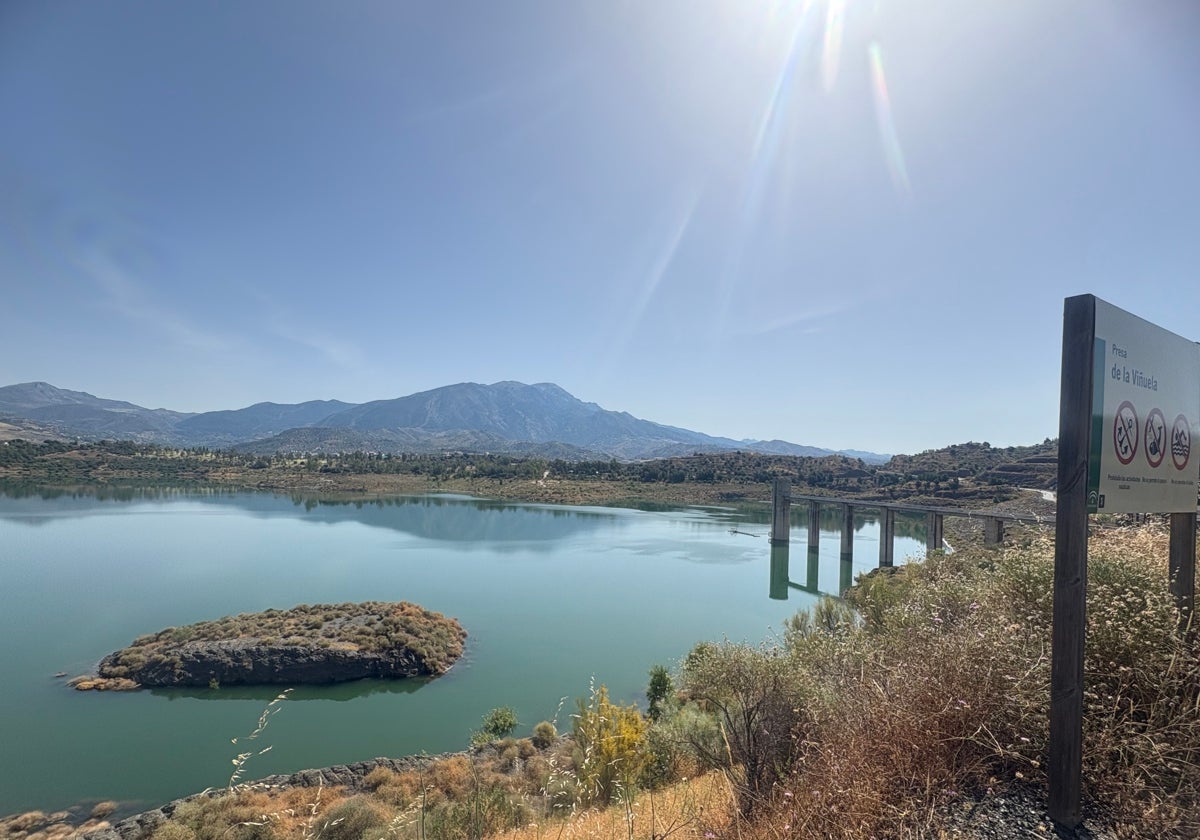
Thursday, 6 November 2025, 18:01
The abundant rainfall of the last water (or hydraulic) year (1 October 2024 to 30 September 2025) put an end to almost five years of extreme drought in Malaga province and in particular the Axarquía. Hundreds of hectares of subtropical crops, especially avocados and, to a lesser extent, mangoes, were badly affected.
Many farmers have chosen to restore their plantations now that the rain has returned and the outlook is once again promising for them. In many cases they are opting for mangoes, which are more resistant to water shortages than avocados, or for crops that can withstand higher saline levels from treated sea water.
The use of recycled water from wastewater treatment plants has compensated for the drastic reduction in resources from the Axarquía’s La Viñuela reservoir. Growers were unable to access water from the reservoir from 1 October 2022 until the summer of 2024, when three million cubic metres were granted for emergency irrigation. After the heavy rainfall of autumn 2024 and winter and spring 2025, this summer 12.8 million cubic metres were made available for growers in the area which meant about 2,000 cubic metres per hectare.
This amount was not used up but the same level has been fixed for the twelve months. This has generated complaints from the farmers, who have asked the Junta de Andalucía to be able to use the unused resources. However, the regional government has not accepted this, citing technical and legal reasons.
Research team
But the efficient use of water resources has become one of the great challenges for public administrations and farmers. The scientific community has also analysed what has happened in recent years in the eastern part of Malaga province, the main tropical fruit-producing area in southern Europe.
A scientific team made up of researchers from the Department of Geology and Ecology at the University of Malaga (UMA), Princeton University (USA) and the Institute of Subtropical and Mediterranean Horticulture (IHSM) ‘La Mayora’, has carried out a multidimensional analysis of the existing water resources in the Axarquía, in which they warn of a “structural drought” and advocate a “profound reform” of water management.
In order to carry out this study, which is part of a collaboration between the UMA and Princeton University, information on human and natural factors, both spatial and temporal, has been collected and analysed from a multidisciplinary perspective: climatic, hydrological (reservoir water), piezometric (groundwater), land use and land governance-related data from the 1990s to the present, focusing primarily on the “extreme water crisis” that has affected this area of southern Spain between 2019 and 2024. The results of the research have recently been published in the US National Academy of Sciences journal, PNAS, they said in a statement.
Expansion of irrigated agriculture
The researchers have found that this situation has been caused by a confluence of short and long-term dynamics. In addition to an unusually severe drought that lasted for several years and directly affected reservoir and aquifer levels, the scientists have identified the expansion of agriculture, which has steadily increased demand for irrigation over the past two decades, as well as “a lack of institutional control” as two of the key factors triggering this “unsustainable” water crisis.
“The current management of water resources, especially groundwater, presents important deficiencies, among them, the great uncertainty surrounding its use and real availability, the lack of measurement of its extraction, the over-allocation of permits and probably, a significant amount of irregular extraction, especially of groundwater,” said Pablo Jiménez Gavilán, professor at the Faculty of Sciences of the UMA, one of the authors of this work.
Gavilán is heading the project called ‘Transfeconhidro’ which, among other objectives, aims to move towards better planning, management and governance of groundwater in Andalucía. The scientists have confirmed the existence of a “structural drought” in the area studied, showing a clear long-term imbalance between water demand and water availability. “In the period analysed it was not possible to use reservoir water for irrigation and, in addition, there were significant restrictions on urban water,” explained the lead author of the study, researcher Victoria Junquera.
She added that these severe cuts, combined with below-average rainfall, had a huge impact on fruit production in 2022 and 2023, with crop losses of 80 per cent for mango and 50 per cent for avocado compared to the previous year, as well as significant tree mortality. This situation, as the expert, who is currently working at the University of Bern (Switzerland), pointed out, has had short-term consequences for the local economy.
Tighter controls
The researchers propose that water resource management “should go beyond traditional measures related to supply (increasing water availability) and demand (increasing efficiency)”. In this sense, they suggest imposing stricter controls on demand, for example by imposing limits on irrigated areas and a more accurate assessment of water availability and use, based on real-time measurements at all abstraction points.
They also advocate the allocation of flexible, adjusted permits, always depending on the available water resources, especially groundwater, and finally, more effective mechanisms for inspection and control by the administrations. “The combination of these measures would reduce the likelihood of future crises in meteorological drought conditions,” they concluded.
This study, which also involved the participation of researchers Iñaki Vadillo (UMA), Jose I. Hormaza (CSIC) and Daniel I. Rubenstein and Simon A. Levin (Princeton University), shows “how extreme climate effects can trigger critical situations in the short term if the system is already at the limit, reinforcing the idea that adaptation to climate change is not only a matter of infrastructure and technology, but also of governance and regulation”.
